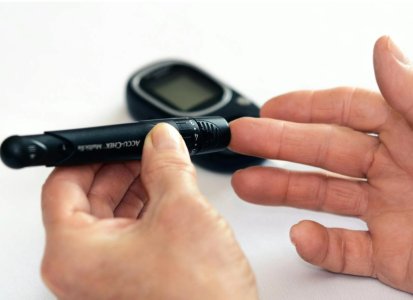Is your blood sugar advice outdated? Here’s what doctors now recommend for older adults
By
Veronica E.
- Replies 0
Disclaimer: The information provided in this article is for educational purposes only and is not intended as a substitute for professional medical advice, diagnosis, or treatment. Always consult your physician or other qualified healthcare providers with any questions you may have regarding a medical condition or before making any changes to your health regimen.
If you’ve spent years watching your blood sugar—skipping dessert, counting carbs, and checking glucose levels—you might be surprised to learn that the advice is changing.
The strict blood sugar control many of us grew up with is being re-evaluated, especially for older adults.
Experts are now prioritizing safety and quality of life over numbers on a chart.
So what does this shift mean for your health? Let’s take a closer look.
Why the change? The surprising risks of going too low
For decades, the message was simple: keep blood sugar as close to “normal” as possible.
But as more research comes in—and as doctors better understand the realities of aging—that thinking has evolved.
The biggest concern? Hypoglycemia, or low blood sugar.

Low blood sugar is more dangerous than previously thought, especially for seniors.
It can cause confusion, dizziness, fainting, and falls.
Unlike high blood sugar, which causes long-term problems, low blood sugar can lead to immediate medical emergencies.
Dr. Sei Lee, a geriatrician at the University of California, San Francisco, put it this way: “It was really important when you were 50. Now, it’s less important.”
In other words, the cost of keeping blood sugar tightly controlled often outweighs the benefit in older adults.
Also read: Ten patients, no more insulin—are we getting closer to curing diabetes?
What’s the new target? A gentler approach for aging bodies
Medical groups like the American Geriatrics Society and the American Diabetes Association now advise a more relaxed approach for seniors.
Instead of striving for the same low numbers as younger people, older adults may be better off with slightly higher targets—especially if they have other health conditions.
The hemoglobin A1c test, which measures average blood sugar over three months, used to have a general target below 7%. For older adults, a target of 7.5% to 8.5% may now be more appropriate.
The ideal number depends on your overall health, how long you’ve had diabetes, and your risk of hypoglycemia.
Also read: The simple sun secret that may add years to your life–Find out how!
Why not just keep it low? The risks of overtreatment
You might wonder why lower isn’t always better. But as Dr. Joseph G. Ouslander emphasized, too many seniors are being overtreated for diabetes.
That means taking medications that may not be necessary—putting people at risk for severe hypoglycemia.
The consequences of overtreatment include:
And let’s face it—no one wants to spend retirement obsessing over every meal and meter reading.
Also read: Physical therapist reveals the secret exercises to alleviate back pain instantly
Finding your balance: one size doesn’t fit all
There’s no universal blood sugar goal that works for everyone.
The right target depends on your medical history, medications, and what feels manageable day to day. If you’re in good health and managing well, a lower A1c might still be okay.
But if you’ve had issues with low blood sugar—or just want to simplify—adjusting your goals might be the safest and most comfortable choice.
The best move? Have an honest conversation with your doctor. Ask whether your current goals still make sense for your age and health.
Your diabetes care should support your life—not control it.
Also read: Neurologist reveals 5 easy steps that cured her chronic back pain—Try them yourself!
Beyond the numbers: life with diabetes should still be lived
Blood sugar levels are important, but they’re not everything.
Staying active, eating well, and keeping up with doctor visits still matter. But so does joy—enjoying your meals, spending time with family, and not letting diabetes dictate your every decision.
A quick note about exercise: while it’s great for blood sugar control, it’s not a free pass for unlimited treats.
A study recently noted that using food as a reward for workouts—like grabbing a donut after a walk—can undo progress.
So enjoy life, but keep moderation in mind!
Read next: 44-year-old shares 5 subtle signs of colon cancer you might be ignoring right now

Have you noticed a shift in your doctor’s advice? Have you dealt with low blood sugar, or found a better routine that works for your lifestyle? We’d love to hear your experiences and tips. Share your story in the comments below!
The GrayVine is here to help you stay informed, supported, and confident as you age. After all, growing older comes with wisdom—and with that wisdom comes the freedom to challenge old rules and embrace better ones.
If you’ve spent years watching your blood sugar—skipping dessert, counting carbs, and checking glucose levels—you might be surprised to learn that the advice is changing.
The strict blood sugar control many of us grew up with is being re-evaluated, especially for older adults.
Experts are now prioritizing safety and quality of life over numbers on a chart.
So what does this shift mean for your health? Let’s take a closer look.
Why the change? The surprising risks of going too low
For decades, the message was simple: keep blood sugar as close to “normal” as possible.
But as more research comes in—and as doctors better understand the realities of aging—that thinking has evolved.
The biggest concern? Hypoglycemia, or low blood sugar.

Staying informed about changing diabetes guidelines can help older adults manage their health with confidence and comfort. Image Source: Pexels / AS Photography.
Low blood sugar is more dangerous than previously thought, especially for seniors.
It can cause confusion, dizziness, fainting, and falls.
Unlike high blood sugar, which causes long-term problems, low blood sugar can lead to immediate medical emergencies.
Dr. Sei Lee, a geriatrician at the University of California, San Francisco, put it this way: “It was really important when you were 50. Now, it’s less important.”
In other words, the cost of keeping blood sugar tightly controlled often outweighs the benefit in older adults.
Also read: Ten patients, no more insulin—are we getting closer to curing diabetes?
What’s the new target? A gentler approach for aging bodies
Medical groups like the American Geriatrics Society and the American Diabetes Association now advise a more relaxed approach for seniors.
Instead of striving for the same low numbers as younger people, older adults may be better off with slightly higher targets—especially if they have other health conditions.
The hemoglobin A1c test, which measures average blood sugar over three months, used to have a general target below 7%. For older adults, a target of 7.5% to 8.5% may now be more appropriate.
The ideal number depends on your overall health, how long you’ve had diabetes, and your risk of hypoglycemia.
Also read: The simple sun secret that may add years to your life–Find out how!
Why not just keep it low? The risks of overtreatment
You might wonder why lower isn’t always better. But as Dr. Joseph G. Ouslander emphasized, too many seniors are being overtreated for diabetes.
That means taking medications that may not be necessary—putting people at risk for severe hypoglycemia.
The consequences of overtreatment include:
- Frequent low blood sugar episodes
- Increased risk of falls and injuries
- Emergency hospital visits
- Decreased quality of life
And let’s face it—no one wants to spend retirement obsessing over every meal and meter reading.
Also read: Physical therapist reveals the secret exercises to alleviate back pain instantly
Finding your balance: one size doesn’t fit all
There’s no universal blood sugar goal that works for everyone.
The right target depends on your medical history, medications, and what feels manageable day to day. If you’re in good health and managing well, a lower A1c might still be okay.
But if you’ve had issues with low blood sugar—or just want to simplify—adjusting your goals might be the safest and most comfortable choice.
The best move? Have an honest conversation with your doctor. Ask whether your current goals still make sense for your age and health.
Your diabetes care should support your life—not control it.
Also read: Neurologist reveals 5 easy steps that cured her chronic back pain—Try them yourself!
Beyond the numbers: life with diabetes should still be lived
Blood sugar levels are important, but they’re not everything.
Staying active, eating well, and keeping up with doctor visits still matter. But so does joy—enjoying your meals, spending time with family, and not letting diabetes dictate your every decision.
A quick note about exercise: while it’s great for blood sugar control, it’s not a free pass for unlimited treats.
A study recently noted that using food as a reward for workouts—like grabbing a donut after a walk—can undo progress.
So enjoy life, but keep moderation in mind!
Read next: 44-year-old shares 5 subtle signs of colon cancer you might be ignoring right now
Key Takeaways
- Doctors are shifting away from strict blood sugar control in older adults due to the risks of low blood sugar (hypoglycemia).
- Medical groups now recommend more relaxed A1c targets—such as 7.5% to 8.5%—especially for seniors with other health conditions.
- Overtreatment of diabetes in older adults is common and can lead to dizziness, falls, and reduced quality of life.
- Each person’s ideal blood sugar goal depends on age, health, and personal preference—talking to your doctor is key.
Have you noticed a shift in your doctor’s advice? Have you dealt with low blood sugar, or found a better routine that works for your lifestyle? We’d love to hear your experiences and tips. Share your story in the comments below!
The GrayVine is here to help you stay informed, supported, and confident as you age. After all, growing older comes with wisdom—and with that wisdom comes the freedom to challenge old rules and embrace better ones.






